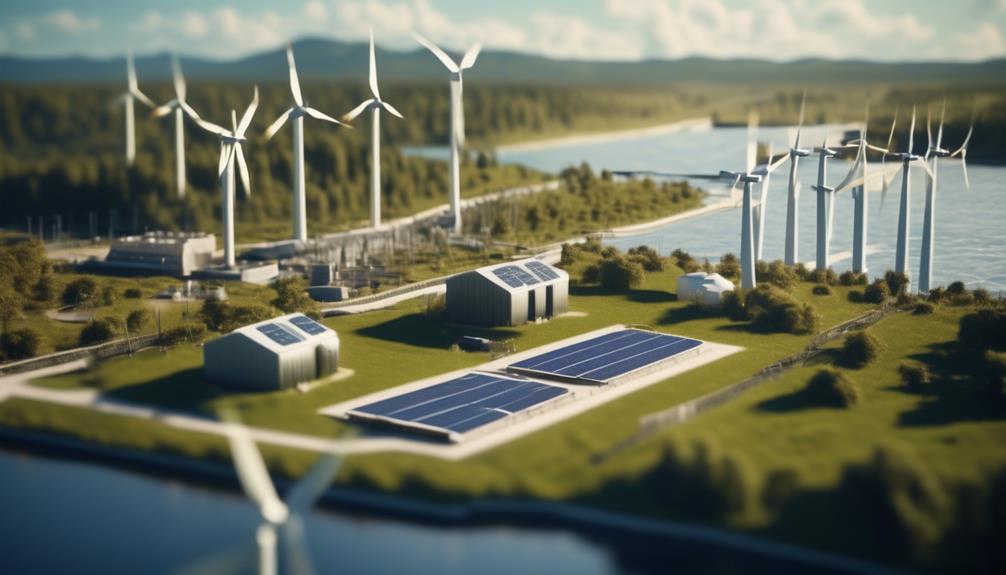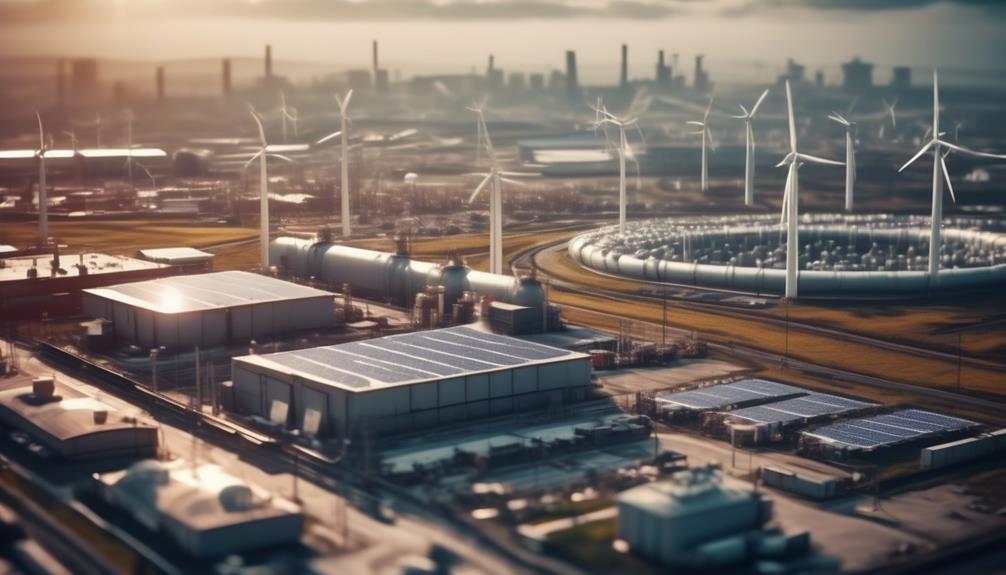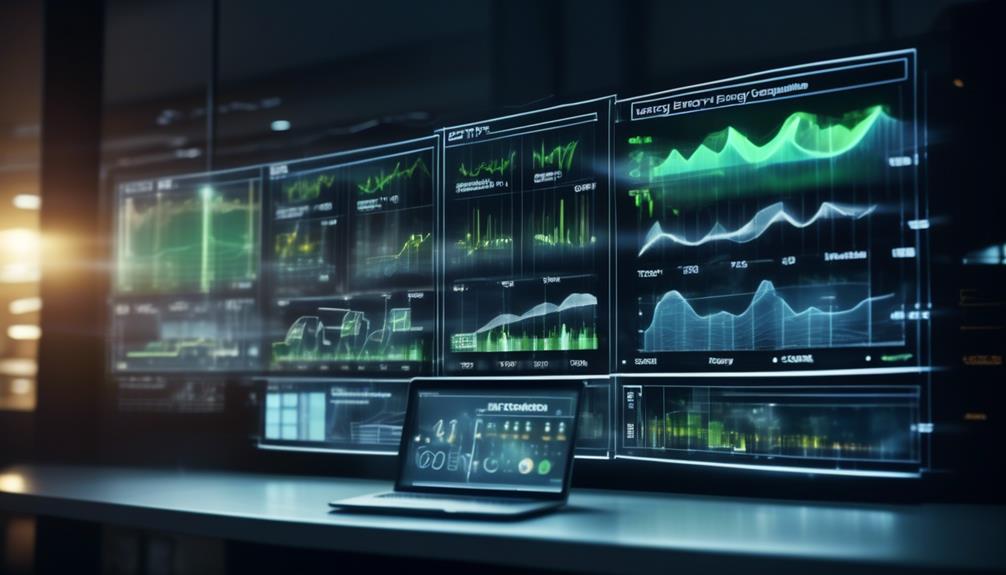In an era where sustainability intersects with cost-efficiency, businesses are on a relentless quest to demystify their energy usage and unearth strategies to not only reduce their carbon footprint but also to significantly lower operational expenses. Navigating through the complex terrain of energy management, these organisations are met with the challenge of identifying the most effective tools and technologies that can provide them with a granular view of their energy consumption patterns.
With a blend of industry insight and a keen understanding of energy dynamics, this article aims to illuminate the path towards achieving these goals, offering a beacon of hope for businesses wrestling with the intricacies of energy monitoring and optimisation.
Acknowledging the unique energy demands and sustainability goals of each business, we delve into the exploration of seven pivotal energy tracking solutions that are reshaping the landscape of energy management. These technologies not only promise to unveil the intricacies of energy usage but also equip businesses with the knowledge to make informed decisions, leading to significant cost savings and environmental stewardship.
By tailoring our discussion to the specific needs and challenges faced by businesses today, we aim to foster a deeper connection with our readers, ensuring they feel both understood and equipped to tackle their energy management journey. As we embark on this exploration together, rest assured that the insights and strategies shared here will serve as your guide to mastering the art of energy tracking, encouraging you to read on and discover the transformative potential of these solutions for your business.
Key Takeaways
- Energy tracking solutions enable businesses to monitor energy usage, identify energy-saving opportunities, and reduce energy costs.
- Monitoring for sustainability efforts helps businesses track and manage carbon emissions, implement energy-saving measures, and reduce environmental impact.
- Power quality analysis through remote monitoring helps analyse power fluctuations, maintain stable power supply, and improve equipment performance and lifespan.
- Energy tracking solutions contribute to sustainability efforts, help businesses reduce their carbon footprint, and encourage environmentally responsible practices for a more sustainable and eco-friendly world.
Smart Meters
Smart Meters revolutionise energy tracking by enabling real-time monitoring and analysis of energy consumption, providing businesses with comprehensive insights into usage patterns and potential areas of waste. These innovative devices offer numerous benefits for businesses seeking to optimise their energy consumption and reduce costs.
One of the key advantages of smart meters is their ability to provide real-time data on energy usage. This data can be used to identify trends and patterns, allowing businesses to make informed decisions about their energy consumption. By analysing this data, businesses can identify areas of potential waste and implement energy-saving measures accordingly.
Furthermore, smart meters provide transparency and visibility into energy usage, empowering businesses to take control of their energy consumption. With access to detailed information about when and how much energy is being used, businesses can identify peak consumption periods and adjust their operations accordingly. This not only helps reduce energy costs but also contributes to sustainability goals by promoting more efficient energy use.
Additionally, smart meters support predictive maintenance, peak load analysis, and energy cost optimisation. By monitoring energy consumption in real-time, businesses can detect potential equipment failures and address them before they become costly issues. Furthermore, smart meters allow businesses to analyse peak load periods and optimise energy usage during those times, leading to reduced energy consumption and improved efficiency.
Energy Dashboard
With the goal of providing businesses with comprehensive monitoring and management capabilities for their energy usage, the Energy Dashboard offers a robust solution for better visibility and control over energy consumption patterns. This energy management software enables businesses to track and analyse their energy usage in real-time, allowing them to make informed decisions to optimise energy conservation and reduce costs.
Here are four key features of the Energy Dashboard:
- Detailed Monitoring: Energy Dashboard allows businesses to monitor their energy usage at a granular level, providing insights into which areas or processes consume the most energy. This information helps identify areas for improvement and implement energy-saving measures.
- Real-time Analytics: The Energy Dashboard provides real-time analytics, allowing businesses to track energy consumption patterns and identify anomalies or inefficiencies promptly. This enables proactive energy management and the ability to address issues before they become significant problems.
- Alert System: The Energy Dashboard includes an alert feature that notifies businesses of any unusual energy consumption or deviations from set targets. This helps businesses take immediate action to rectify any wastage or inefficiencies, leading to cost savings.
- Improved Efficiency: By utilising the Energy Dashboard, businesses can gain a better understanding of their energy usage and implement strategies to improve efficiency. This not only helps reduce operating costs but also contributes to a smaller carbon footprint.
Real-time Monitoring
Real-time monitoring provides businesses with instant energy data, live energy analytics, and continuous energy tracking. This allows organisations to have real-time visibility into their energy consumption and power quality, enabling them to optimise energy usage plans promptly.
With comprehensive insights and trend analysis, businesses can identify areas of potential energy wastage and implement strategies to reduce operating costs and carbon emissions.
Instant Energy Data
The implementation of Instant Energy Data (Real-time Monitoring) revolutionises energy management by providing continuous, remote monitoring and analytics of energy consumption and power quality.
This innovative system offers businesses the ability to optimise their energy usage by identifying energy consumption trends and areas of wastage. By receiving real-time data on their energy usage, companies can make informed decisions to reduce operating costs and carbon emissions.
Moreover, Instant Energy Data allows users to receive alerts and alarms for excessive energy usage and plant failure, providing better visibility and control over their energy management.
With its advanced capabilities, this solution transforms the way businesses track and manage their energy, paving the way for more efficient and sustainable practices.
Live Energy Analytics
Live Energy Analytics, through its real-time monitoring capabilities, provides businesses with detailed insights into their energy usage patterns and enables proactive management of energy consumption and power quality.
With continuous, remote monitoring, businesses can have immediate visibility into their live energy consumption, allowing them to identify areas of energy wastage and make targeted efficiency improvements.
By analysing the incoming supply, businesses can gain a comprehensive understanding of their energy usage patterns, helping them optimise their energy management strategies.
This data-driven approach offers businesses the opportunity to reduce operating costs and carbon emissions through effective monitoring and management.
With live energy analytics, businesses can take a proactive stance towards energy consumption, making informed decisions to improve efficiency and sustainability.
Continuous Energy Tracking
Continuous energy tracking, also known as real-time monitoring, offers businesses the ability to gain immediate visibility into their energy consumption and make data-driven decisions to optimise efficiency and sustainability. This innovative solution provides numerous benefits for businesses looking to reduce energy wastage and optimise energy consumption.
Here are four reasons why continuous energy tracking is crucial for businesses:
- Energy wastage detection: Continuous tracking enables businesses to identify areas where energy is being wasted, allowing for targeted interventions and improvements.
- Energy consumption optimisation: Real-time monitoring provides comprehensive analytics of incoming energy supply, helping businesses optimise their energy consumption and reduce operating costs.
- Cost savings: By pinpointing areas for improvement, continuous energy tracking helps businesses reduce their energy expenses, leading to significant cost savings.
- Environmental sustainability: By optimising energy consumption, businesses can reduce their carbon emissions and contribute to a more sustainable future.
Continuous energy tracking empowers businesses to make informed decisions and implement effective energy management strategies, ultimately driving efficiency and innovation.
Energy Analytics
Energy analytics utilises advanced data analysis techniques to track and optimise energy consumption patterns within businesses. With the increasing need for energy management and sustainability, organisations are turning to energy analytics as a powerful tool to gain insights into their energy usage and make informed decisions about energy consumption.
By analysing large amounts of data collected from various sources such as smart meters, sensors, and building management systems, energy analytics provides businesses with a detailed understanding of their energy consumption patterns. It enables them to identify areas of inefficiency, prioritise energy-saving initiatives, and optimise energy usage. Through energy consumption analysis, businesses can uncover hidden patterns, anomalies, and opportunities for improvement.
Energy analytics also allows businesses to set energy consumption targets, monitor their progress, and benchmark their performance against industry standards. By identifying energy-saving opportunities and implementing energy management strategies, organisations can reduce their carbon footprint, lower energy costs, and achieve sustainability goals.
Furthermore, energy analytics can provide real-time insights and alerts, enabling businesses to take immediate action in response to abnormal energy consumption patterns or equipment malfunctions. This proactive approach not only helps to prevent energy wastage but also minimises operational disruptions and improves overall energy efficiency.
Demand Response
With the growing demand for energy management and sustainability, businesses are increasingly turning to Demand Response as a strategic solution to optimise their energy consumption patterns and contribute to a more efficient and reliable energy system. Demand Response allows businesses to reduce their energy consumption during peak demand periods in exchange for financial incentives or reduced energy costs. By participating in Demand Response programs, businesses can contribute to grid stability and reliability while managing their energy expenses. This innovative approach to energy management is facilitated through automated systems that control and optimise energy usage in real-time, based on grid conditions and pricing signals.
Here are four reasons why businesses are embracing Demand Response:
- Financial benefits: By participating in Demand Response programs, businesses can benefit from financial incentives or reduced energy costs, resulting in significant savings.
- Grid stability: Demand Response helps balance supply and demand by adjusting energy usage in response to signals from utilities or grid operators, ensuring a stable and reliable energy system.
- Sustainability: By reducing energy consumption during peak demand periods, businesses can contribute to a more sustainable energy system, reducing the need for additional power generation and associated greenhouse gas emissions.
- Smart grid integration: Demand Response leverages smart grid technologies, enabling businesses to seamlessly integrate with the grid and optimise their energy usage based on real-time data and pricing signals.
Through Demand Response, businesses can actively participate in energy management while benefiting from financial incentives, contributing to grid stability, promoting sustainability, and leveraging smart grid integration.
Energy Auditing
Energy auditing plays a crucial role in helping businesses implement energy efficiency strategies and cost-saving measures.
By conducting a detailed analysis of energy usage and consumption patterns, businesses can identify areas for improvement and implement targeted measures to reduce energy consumption.
Energy auditing provides businesses with the data-driven insights needed to make informed decisions and optimise energy usage, ultimately leading to reduced costs and improved environmental impact.
Energy Efficiency Strategies
Utilising energy auditing, businesses can identify potential areas of energy waste and effectively reduce consumption by implementing comprehensive energy efficiency strategies. This approach offers several benefits, including:
- Real-time monitoring, analysis, and reporting of energy consumption: Businesses gain valuable insights and trend analysis to make informed decisions on energy-saving measures.
- Accurate collection and analysis of energy data: Energy auditing enables the implementation of targeted and effective energy-saving measures.
- Optimisation of energy costs and reduction of expenses: By identifying and addressing areas of energy waste, businesses can optimise their energy usage and reduce costs.
- Contribution to sustainability goals: Energy auditing helps businesses become more environmentally responsible by reducing their carbon footprint and supporting sustainability initiatives.
With constant optimisation and the creation of an effective energy management strategy, businesses can achieve significant energy efficiency improvements and contribute to a more sustainable future.
Cost-saving Measures
Cost-saving measures through energy auditing involve the identification of areas of energy wastage and the implementation of strategies to reduce operating costs and carbon emissions. Energy auditing provides valuable insights into energy consumption patterns, enabling businesses to optimise their energy usage and reduce costs.
By analysing real-time energy monitoring data, businesses can identify areas of high energy usage and implement energy-saving measures to reduce peak demand and overall consumption. Energy optimisation techniques, such as adjusting temperature set-points, optimising lighting schedules, and improving insulation, can significantly contribute to reducing energy waste and lowering operating costs.
Additionally, energy monitoring systems offer comprehensive insights for creating an effective energy management strategy, aligning with sustainability goals and reducing environmental impact. Implementing these energy-saving tips can not only save costs but also promote sustainability and innovation within businesses.
Remote Monitoring
Remote monitoring is a powerful tool that allows businesses to track and analyse real-time energy consumption and power quality, enabling them to make data-driven decisions for optimising energy management strategies. By harnessing the capabilities of remote monitoring, businesses can benefit from a range of advantages that enhance their energy tracking and management efforts.
The benefits of remote monitoring include:
- Enhanced visibility: Remote monitoring systems offer transparency into energy usage, providing businesses with valuable insights into their energy consumption patterns. This visibility allows for the identification of areas of energy wastage and the implementation of targeted energy-saving measures.
- Cost savings: By continuously monitoring energy usage and receiving real-time analytics and alerts, businesses can identify and address excessive energy consumption. This proactive approach enables them to reduce operating costs and improve their bottom line.
- Carbon emissions reduction: Remote monitoring helps businesses in their sustainability efforts by enabling them to track and manage their carbon emissions. By identifying areas of high energy usage and implementing energy-saving measures, businesses can reduce their environmental impact and contribute to a greener future.
- Optimised energy management: With remote monitoring, businesses can optimise their energy management strategies based on real-time data. By analysing energy consumption patterns and power quality, businesses can make informed decisions that maximise energy efficiency and minimise waste.


















